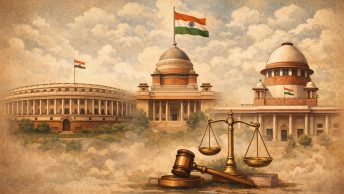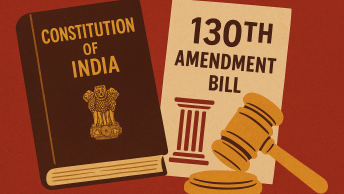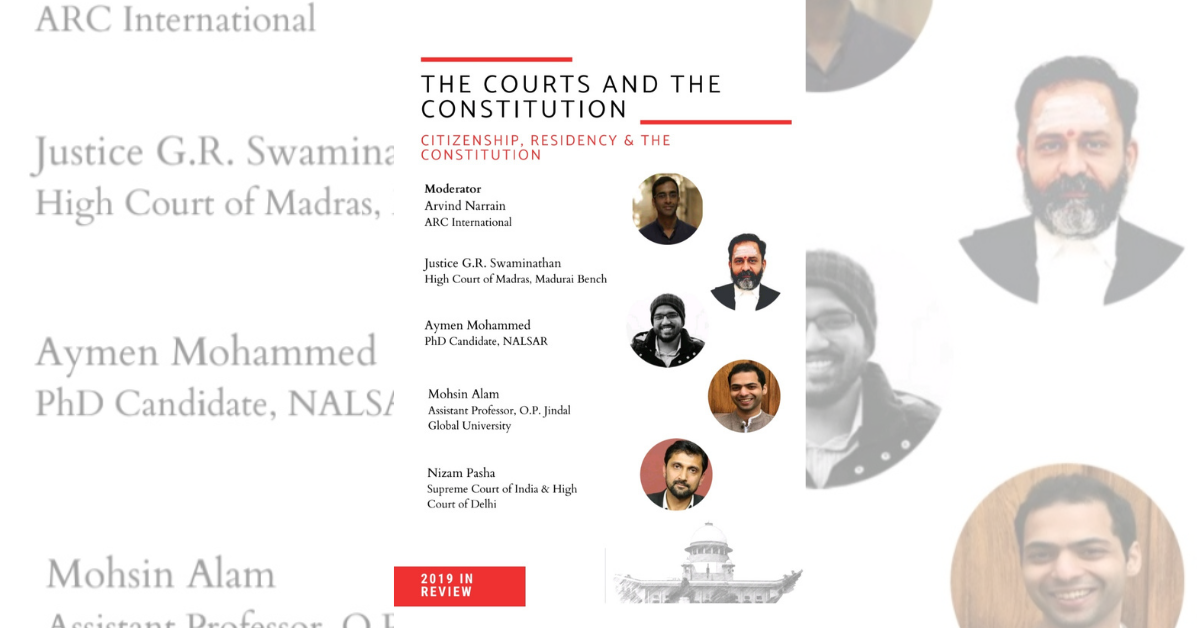Introduction
In early December, the Union Ministry of Home Affairs ordered three IPS officers belonging to the West Bengal Cadre to report for deputation at the Centre. The officers were responsible for the security of BJP leader J.P. Nadda, whose motorcade was stoned on the outskirts of Kolkata. The West Bengal Government showed reluctance in relieving the officers from their posts. Subsequently, the Centre cited Rule 6(1) of the IPS Cadre Rules, 1954, claiming that in case of altercation over an officer’s deputation, the will of the Centre would prevail. This dispute, while being portrayed in a political light, has raised concerns regarding the position of civil servants in the federalist set-up of the Indian state. We argue that the Centre’s interpretation of Rule 6 is in contravention to the federal structure of the Constitution.
Federalism and All-India Services
Federalism stands out as a political attempt to address the social, ethnic and cultural vectors of diversity.[1] Described as ‘cooperative federalism’, the Indian model is pillared on the belief of administrative cooperation between the Centre and the states.[2] Enshrined in Article 312 of the Indian Constitution, the All-India Services in their current form are remnants of the Imperial Civil Service and Imperial Police established during the British era. During the Constituent Assembly Debates, Sardar Patel emphasised that the Constitution, in the shape it was taking, would require a ring of services to operate it and keep it intact. Patel’s conceptualisation of the Civil Services came to be known as the ‘steel frame’ envision since the Services provided a mechanism for national integration through the permanence that they furnished to the executive.
However, debates of the Assembly underpin a stark distinction being made by the provinces between recruitment process and control. While recruitment was agreed to be conducted at a national level, control rested with the provinces. This practice has continued to present day, where after deputation to the Centre, officers have to mandatorily return to serve in their parent state cadre for a ‘cooling off period’. Such a constant flux of officers is intended to facilitate communication between the Centre and the states. This feature is unique to Indian federalism, and of paramount significance since ‘cooperative federalism’ entails critical nation building tasks requiring partnership of the states. However, the current dispute breaches this doctrine due to the misinterpretation of Rule 6(1) of the IPS (Cadre) Rules.
(Mis)interpretation of Rule 6 of the IPS (Cadre) Rules, 1954
Standard procedure under Rule 6 of the IPS (Cadre) Rules clearly dictates that the concurrence of the state is a necessity for matters concerning IPS officers’ deputation. In fact, under normal circumstances, it is the state that sends an “Offer List” of “suitable and willing” officers for central deputation and the Centre subsequently decides the posts to be awarded to these officers. Nevertheless, the proviso empowers the Centre to exercise the final word in disputes concerning deputation. However, the Central Government’s interpretation of the proviso supports a limitless authority to rule by decree. We submit two arguments which prove that the centre’s interpretation of this rule is erroneous.
First, it has incorrectly interpreted the word ‘disagreement’ in the proviso to Rule 6. Before the Centre came knocking on the doors of the West Bengal Government, there was no dispute between two parties. This ‘disagreement’ arose merely because the Centre unilaterally initiated the transfer of the three officers in question. This was pressed further despite the fact that the West Bengal Government refused to comply. Adopting the Centre’s invocation of the Rule as valid would set the precedent that the Centre can burst in, ordering the transfer of IPS officers and manufacturing disputes at its whim. It can invoke Rule 6 and carry out its order; with states being left with no means to preserve their IPS manpower, the administrative apex of state police forces. Fabricating a dispute and terming it as a ‘disagreement’, contravenes the principle of cooperative federalism.
Second, the central government has erroneously treated Rule 6 as unitary in nature. It is important to uncover the rationale behind the Rule. At the Centre, IPS officers are engaged in leading and commanding a number of vital Central Armed Police Forces and critical intelligence organisations. To ensure their adequate staffing in times of need, Rule 6 can play decisive role. Nevertheless, instituting a provision such as Rule 6 in a manner that permits it to be operative in ordinary times leads to certain issues.
It was clarified in the Constituent Assembly that the Indian Constitution is federal to the extent that it provides for a dual-polity in sharing sovereign power. To this effect, the whole point of enumerating matters in the State List would be defeated if states do not have adequate autonomy to enforce the laws they formulate. Further, states ought to have all the more means to retain their IPS officers, considering that ‘Public Order’ and ‘Police’ are entries under the State List. By empowering the Centre to legitimately dispossess states of the administrative heads of their law enforcement agencies, the Centre’s interpretation of Rule 6 stands in fierce contravention of the federal character of the Constitution.
Invalidity of the Order and Standard of Judicial Review
If the validity of such an order is challenged, there are several arguments that the state government can submit.
First, seeking the concurrence of the state government is an established convention, and established conventions are justiciable. The Supreme Court, in SCAORA v. Union of India, adopted the Ivor Jennings Test to enforce established conventions. Accordingly, three conditions need to be fulfilled – first, there must be a precedent; second, the actors must believe they were bound by a rule; and third, there must be a reason for the rule.
In the present case, the practice of securing the state government’s consent in such a process has been followed for years. The Ministry of Home Affairs has released several Office Memorandums (2000 and 2004) laying out the official procedure for carrying out a deputation. It clearly mentions that “all persons concerned must abide by these instructions”. Further, it quotes Rule 6 and directs that the empanelment of officers must have a reasonable basis in seniority and experience. This clearly shows that the government believed they were bound by a rule and establishes the fulfillment of the first and second conditions of precedent and recognition respectively. Addressing the third condition, the rationale for such a practice is embedded in the concept of cooperative federalism and, as is stated in the deputation policy itself, for the benefit of all parties involved. Hence, the practice of “offer lists” and seeking concurrence of the State Government must be recognized as an enforceable convention as per Ivor Jennings Test.
Second, the decision of the central government is unreasonable and arbitrary, affected by bias and mala fides. Emerging from the Wednesbury principles of administrative review, executive action should be struck down on account of the aforementioned principles. However, formal review would entail deference to the point where the court does not examine the context and documents involved in taking such a decision. In the present fact scenario, a formal review would result in a mere assessment of the validity of the Rule 6 order in isolation, without probing beneath the surface to scrutinize the material that purportedly prompted the order. We argue that in order to check mala fide intention and bias, a substantive review, must be adopted. Such a review allows the court to summon and examine documents and materials that resulted in such a decision.
Precedent is in favour of striking down decisions of transfers and promotions taken arbitrarily and with bias. When M.K. Bezbaruah was suddenly transferred for political appeasement, the Supreme Court came down heavily upon the executive for ‘arbitrariness’ and reinstated the officer. In 2017, Archana Ramasundaram won a legal battle against the use of IPS officers as a pawn for Centre-state rivalry. In fact, the CAT struck down the suspension order of M. Sathyapriya, an IPS officer, on the grounds that “the DGP had, in good faith and bona fide” complied with Rule 6, while the state government was arbitrary in issuing a suspension order.
In the present case, while all officers were eligible for such a deputation, the decision is clearly not based upon their skill or efficacy. This year’s offer list was requested by the Centre on December 7, 5 days before the JP Nadda incident took place. This clearly shows that Centre was willing to follow standard procedure for deputation until the impugned incident took place. It is no surprise that the decision is in response to the lack of security provided to JP Nadda during his visit to West Bengal. Taking into account all these materials and the context, such a decision must be struck down for violating the Constitution.
To conclude, Rule 6 of the IPS (Cadre) Rules must be interpreted in light of the principle of co-operative federalism, by rejecting its unitary treatment. Furthermore, courts must strike down the union government’s decision as vitiating the basic tenets of executive decision-making. A substantive review of the circumstances surrounding such a dispute highlights the colourable nature of the same.
[1] Lidija R Basta Fleiner and Jean-Francois Gaudreault-Desbiens, ‘Federalism and Autonomy’ in Mark Tushnet, Thomas Fleiner and Sheryl Saunders (eds), Routledge Handbook on Constitutional Law (Routledge 2013) 143.
[2] Louise Tillin, Indian Federalism (OUP 2019).








The article fails to explore the situation where states do not release officer on central deputation. There is a formula Of 25% worked out between states and DoPT/Home Ministry for AIS officer deputations. West Bengal doesn’t let Officers go on central deputation even if the officer wants to, NoC is not given.
In case of AIS the president is the ultimate appointmenting authority while the governor is the immediate authority.
Your article helped me a lot, is there any more related content? Thanks!